50+ Must Know Caribbean Spanish Expressions (You’ll Only Hear These in the Caribbean)
When you think about the Spanish language and culture, you probably think about the running of the toros (bulls) in Spain or elegant women dancing the tango on the streets of Buenos Aires. Or maybe images of black and white skeleton-painted faces for Mexico’s Día de los muertos (Day of the Dead) pop into your head.
Despite the fact that Spanish speakers outnumber English speakers in the islands of the Caribbean, many of us only think about its sandy pristine beaches when we hear a Bob Marley song.
You probably don’t think of Caribbean Spanish.
The truth is, the Spanish speaking Caribbean has a rich cultural identity that makes it unique in many ways. Its language -much like its people, cuisine, music, and dance -represents a coming together of cultures: Spanish, indigenous, and African.
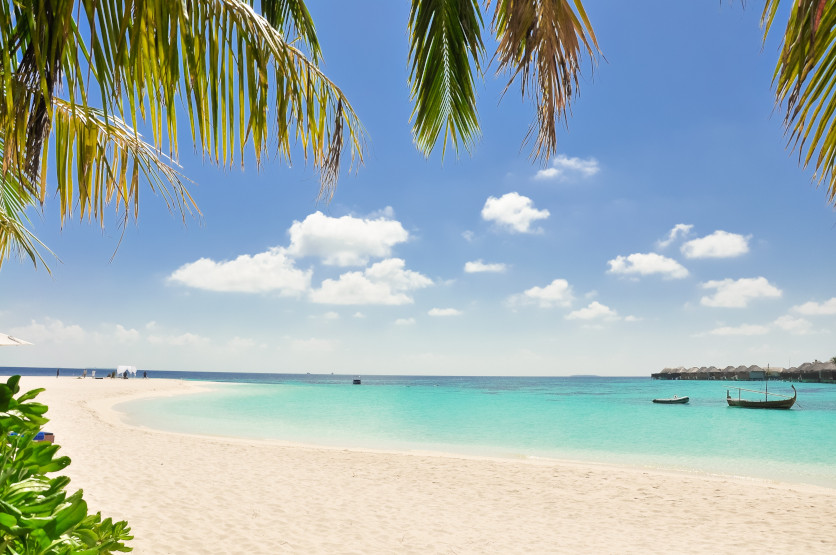
From the island shores of Cuba, Puerto Rico, and the Dominican Republic to the Caribbean coasts of Costa Rica, Colombia, and Venezuela exists a Latin American culture that isn’t 100% Latino nor 100% West Indian. Their common ancestry of Taíno and Carib indigenous tribes, Spanish colonists, and African slaves has been preserved in the languages of each of these Caribbean populations.
Later migration, military intervention, and the sheer proximity of the United States brought an American English influence that’s created some “Spanglish” throughout Latin America.
This means that Caribbean Spanish, like many other Spanish dialects, carries historical influences that make it unlike the European Spanish taught in many schools.
The result: many Spanish learners and even native Spanish speakers visit the Caribbean and are shocked when they are unable to understand much of what’s being said.
“They talk so fast!”
“Is that even Spanish?”
“What did he just say??”
In fact, the accent in this region resembles the Andalusian region of Spain more than any other area. This is mainly because the Spaniards that first arrived in the west were from Southern Spain.
For example, the aspiration or deletion of the /s/ sound at the end of syllables and words is common to both dialects. This is why a phrase like Buenos días. ¿Cuántos huevos quieres? ¿Dos o tres? (“Good morning. How many eggs would you like? 2 or 3?”) may be difficult to decipher to an untrained ear. It will sound more like Bueno’ día’ ¿cuantouevoquiere’? ¿Do’ tre’?
But while there are some commonalities in accent, the words that have been preserved and created from the aforementioned influences have given rise to a special way of speaking Spanish.
And if you’re not aware of it, you might be at a loss when trying to have a conversation in Caribbean Spanish… or even if you’re listening to music from the region.
The explosion of popularity of Latin American music represents genres largely from the Caribbean: namely reggaeton (Puerto Rico), bachata (Dominican Republic), salsa (Puerto Rico, Colombia, Cuba), dembow (Dominican Republic).
And this music has fans from all over the Spanish-speaking world, including many non-Spanish speakers.
This means if you’re going to turn on the radio or enjoy your favorite playlist, you may run across Caribbean Spanish words and phrases. So it’s a good dialect to be aware of!
50 Must Know Caribbean Spanish Words — and Their English Translations
While there are regional differences even within the islands, there are many words and expressions that are used across most of the Caribbean.
Let’s take a look at some of the most common that you’ll likely hear throughout the region:
1. Chiquito – “Child”
Un chiquito necesita dormir más horas que un adulto. – “A child needs to sleep more hours than an adult.”

2. Bochinche – “Discussion”
Also means fight, dispute, racket, or uproar.
Comenzaron a discutir y se formó un tremendo bochinche. – “They started to argue and everything ended in a big fight.”

3. Guachimán – “Guard”
Usually someone watching the cars on the street (comes from the English words “watch” and “man”).
El guachimán de ese restaurante es muy amable. – “The guard at that restaurant is very friendly.”

4. Coco – “Bald, hairless”
No hair on the head.
Jorge se está quedando *coco y apenas tiene 23 años.* – “Jorge is going bald and is barely 23 years old.”

5. Candela – “Fiery”
Being unpredictable or hard to deal with; fiery.
José es candela. Cuídate de él. – “José is a fiery one. Watch out for him.”

6. Dale – “Go ahead”
Interjection demonstrating approval, meaning ‘okay’ or ‘go ahead.’
Ve tú primero, dale. – “You go first, go ahead.”

7. Guagua – “Bus”
A van or SUV; bus.
Ayer esperé la guagua para San Juan por más de una hora. – “Yesterday I waited for the bus to San Juan for more than an hour.”

8. Jeva – “Woman”
Informal way to say “woman.”
Las jevas de La Habana son bellas e inteligentes. – “The women of Havana are beautiful and smart.”

9. Radio Bemba – “Word on the street”
Word on the street, the grapevine, rumor. This phrase has origins in Cuba but is used throughout the region.
¿Qué dice radio bemba? – “What’s the word on the street?”

10. Socio (masculine) / Socia (feminine) – “Close friend”
Close friend.
Arturo y Raúl son socios. – “Arturo and Raul are good friends.”

11. Fiebrú’ (masculine) / Fiebrú’a (feminine) – “Enthusiast”
Someone that spends a large amount of time, effort and resources in participating in a specific activity; enthusiast. (Contraction of fiebrudo/fiebruda.)
Francisco un fiebrú de las carreras de carros y va a correr todas las semanas. – “Francisco is a racing enthusiast and races his car every week.”

12. Guille – “Full of oneself”
An attitude of pride or conceit; to be full of oneself; cockiness.
Tiene tremendo guille ahora que empezó a trabajar en esa compañía. – “He’s so full of himself now that he works for that company.”

13. Guineo – “Banana”
Banana. This name is unique to the region, and shouldn’t be confused with the larger plátano (plantain), which must be cooked before eating.
Me gusta comer siempre un guineo en el desayuno. – “I always eat a banana for breakfast.”

14. Mai – “Mom”
Contraction of the word “madre” (mother). It’s commonly used to refer to the parental figure, or a female loved one.
Dile a tu mai que venga acá. – “Tell your mom to come here.”

15. Pana – “Buddy”
Friend, buddy.
Ayer salió con sus panas a celebrar el ascenso que le dieron en el trabajo. – “Yesterday he went out with his friends to celebrate his new promotion.”

Now that you’ve got some of the common Caribbean words down, let’s take a look at words that are unique to specific regions: namely Cuba, Puerto Rico, and the Dominican Republic.
Spanish Words You'll Only Hear in Cuba

Cuba has a culture all its own. Aside from its infamous revolution and tumultuous political history, Cubans are proud of their identity. Their language reflects the diversity in this large Caribbean island.
Let’s take a look at some Cuban Spanish words…
16. Palestino – Not from Havana
Someone that is not from Havana, especially if they are from the east part of the island; outsider.
Ése está más perdido que un palestino. – “That guy is more lost than an outsider.”
17. ¿Qué bolá? – “What’s up?”
Phrase meaning “What’s up?” or “How are you?”
¿Qué bolá asere? – “What’s up buddy?”
18. Sardina – “Skinny Woman”
Skinny woman.
Mira esa sardina. – “Look at that skinny woman.”
19. Son – “Son”
Not to be confused with the third person plural form of “ser” (to be). This is a type of Cuban music fundamental to salsa music.
Mi puro cantaba son en los bares. – “My father used to sing ‘Son’ in bars.”
20. Darse un totazo – “to hit oneself by accident”
To hit oneself by accident, especially in the head.
- Me di un totazo esta mañana y me mareé.* – “I accidentally hit myself this morning and I got dizzy.”
21. Yuma – USA
- The United States.
- A foreigner, especially North American.
Toda mi familia se ha ido pa’ la Yuma. – All my family has left for the _US_.
22. Tonga – “A lot”
A big quantity of something.
Tengo una tonga de mangos pa’ llevar al mercado. – “I have a bunch of mangos to take to the market.”
23. Rumba – “Party”
Esta noche hay rumba en el centro. – “Tonight there’s a party downtown.”
24. Piñazo – “Punch”
Punch; hit delivered with the fist.
El papá de Enrique le dio un piñazo en la clase de boxeo. – “Enrique’s father punched him in boxing class.”
25. Pinchar – “To work”
To work.
Me voy temprano mañana a pinchar. – “I’m going to work early tomorrow.”
26. Moros y cristianos – “Moors and Christians”
White rice with black beans. (Literally: Moors and Christians.)
Señora, quisiera moros y cristianos con el bistec. – “Ma’am, I’d like black beans and white rice with the steak.”
27. Fula – “Dollar”
Slang for US dollar
Uniquely Puerto Rican Words and Phrases
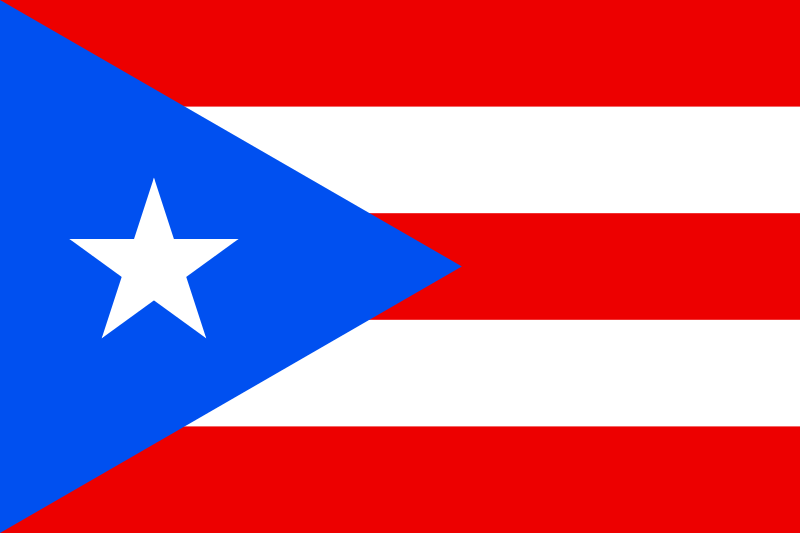
Puerto Rico is a US territory, and notorious for its Spanglish. I once heard a story about someone from Puerto Rico making up their own cognate for the word carpet. They didn’t realize that a carpeta is actually a folder in Spanish, despite the fact that the individual was a native Spanish speaker.
If you hear any of the following words, it’s likely you’re talking to a Boricua.
28. Dito – “Please!”
Contraction of bendito, used to express pity or compassion, or to plead with someone.
¡Dito! ¡Ayúdame, por favor! – “Please! Help me!”
29. Coquito – “holiday drink”
Holiday drink made by mixing eggs, condensed milk, evaporated milk, cream of coconut, coconut milk, cinnamon and other spices and normally spiked with rum
It’s a Puerto Rican version of eggnog, and it’s delicious!
Mi tía nos hizo dos botellas de coquito para Navidad. – “My aunt made two bottles of coquito for Christmas.”
30. Corillo – “A group of friends”
A group of friends; gang.
Ángel siempre sale los fines de semana con su corillo de amigos. – “Ángel always goes out with his gang on the weekends.”
31. Fufú
- A dish of African origin made out of smashed boiled plantains and cassava.
- A spell cast by a practitioner of the Santería religion.
El fufú es una comida difícil de encontrar en los restaurantes en Puerto Rico. – “Fufú is a tough food to find in restaurants in Puerto Rico.”
Compró flores, velas y estampas de santos para hacerle un fufú a su marido. – “She bought candles, flowers and saint icons to perform a spell over her husband.”
32. Mofongo
Traditional dish made out of mashed fried green plantains. It’s usually served in the shape of a bowl and stuffed with meat, chicken, or seafood.
Me gusta el mofongo con mucho ajo. – “I like my mofongo with lots of garlic.”
33. Mangó – “Mango”
Mango – the fruit. This word has the peculiarity that Puerto Rico is the only Spanish-speaking country in which the tonic accent is on the last syllable instead of the first, meaning that it needs to have a graphic accent.
Ya pronto va a ser época de mangó. – “It will soon be mango season.”
34. Ñoño (masculine) / Ñoña (feminine) – “Prima Donna”
A person that is likes to be spoiled; someone that needs a lot of love and attention; a docile animal.
Ese gato es muy ñoño y le gusta dormir en la falda de su dueña. – “That cat is very spoiled and likes to sleep on his owner’s lap.”
35. Parcha – “Passion fruit”
Passion fruit (known in other countries as maracuyá). Puerto Rico is the only place in which it is known as parcha.
El jugo de parcha es muy bueno para bajar la presión. – “Passion fruit juice can help lower high blood pressure.”
36. Patatús – “To freak out”
A strong reaction to a negative event; freaking out.
Te va a dar un patatús cuando te enteres de lo que pasó. – “You’re going to freak out when I tell you what happened.”
37. Bacalao (masculine) / Bacalá (feminine) – “Coward”
Someone who is weak of character and has little initiative; slacker, coward.
¿Le dijiste que no querías ir? ¡Qué bacalá eres! – “You told him you didn’t want to go? You’re so chicken!”
38. China – “Orange”
Orange – the fruit. Not to be confused with the country China.
No hay nada como un jugo de china fresco. – “There is nothing like freshly squeezed orange juice*”
39 – Chinchorro – “Cheap Bar”
A modest establishment with a friendly and informal atmosphere where food and drink is sold at low prices; joint.
En el centro del pueblo hay un chinchorro que vende las cervezas súper baratas. – “There’s a hole in the wall bar in the city center that sells cheap drinks.”
You Know You're Talking to a Dominican If…
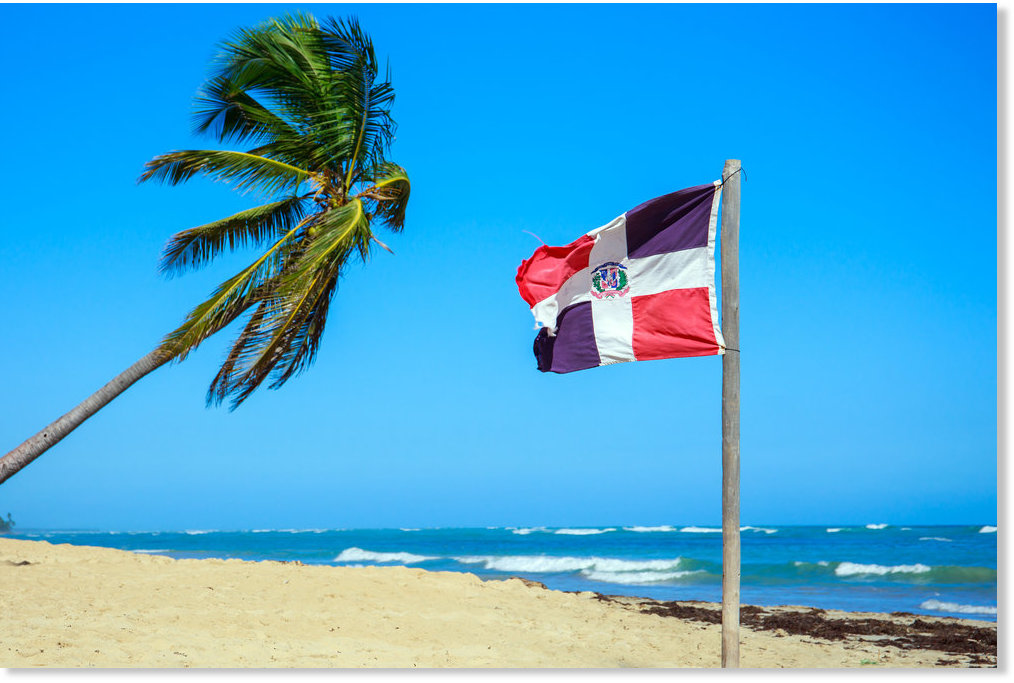
Dominicans could easily win the award for the most difficult to understand Spanish speakers. But once you get the hang of the way they speak and learn a little about the culture, it’s not so bad. It helps if you know some of these words, too:
40. Aficia’o (masculine) / Aficia’a (feminine) – “Deeply in love”
A person that is deeply in love.
María está aficia’a de su marido. – “Maria is deeply in love with her husband.”
41. Allantoso (masculine) / Allantosa (feminine) – “Show off”
A person who talks a lot and does little, a show off.
Esos políticos son unos allantosos. – “Those politicians are all talk and no action.”
42. Anda el diablo – “The devil walks”
Translates literally to “the devil walks.” This phrase is used commonly to show frustration, worry, or awe.
- Anda el diablo, ahora no tenemos gasolina.* – “For the love of God, now we’re out of gas.”
43. Juntadera – “Get together”
This term refers to a gathering to drink or eat.
La juntadera de esta noche es en casa de Juan – “The get together is at John´s”
44. Mata – “Tree”
Tree (in other countries, árbol).
¿Viste a ese carajito encaramarse en esa mata? – “Did you see that kid getting up that_ tree_?”
45. Matatan
A man who believes is able to handle any situation or person.
Ese pana es un matatan. – “That dude is a pro.”
46. Merengue
Musical style originating in the Cibao (northern region) of the Dominican Republic, it consists of fast rhythms and is played on instruments such as the güira, marimba, accordion and hand drums.
El dominicano que no le guste el merengue que se revise. – “A Dominican that doesn’t like merengue has to get himself checked.”
47. Picoteo – “Side hustle”
Informal or second job, side hustle.
Yo picoteo en las tardes cuando salgo del trabajo. – “I work my second job in the afternoons when I get out of work.”
48. Qué lo que – “What’s up?”
An expression meaning “What’s up?” or “What’s going on?” Literal translation “What is what.” KLK is the text message abbreviations of this term.
Dime qué lo que con esa jeva. – “Tell me what’s up with that girl.”
49. Sanki-Panki
Also known simply as “Sanki,” is someone that roams the beaches of the island in search for foreigners to start a romance for money or with the ultimate end of getting a visa to leave the country, usually through marriage.
Los Sanki-Panki están sueltos en playa boca chica. – “Sanki-pankis are loose in Boca Chica beach”
50. Sancocho
Traditional Dominican dish, it’s a thick soup that comes full of tubers/root vegetables, and well-seasoned meats.
El sancocho de don Raulo está para morirse. – “Old man Raulo’s sancocho is to die for.”
51. Ta’To – “Everything’s all right”
Linguistic contraction of the phrase in Spanish “Está todo bien” (Everything is all right).
- Ta’to’, llego en un momento.* – “OK, I’ll be there in a moment.”
There you have it, 51 Spanish words from the beautiful Caribbean. Enjoy – and let me know if you use any of them when you visit the Caribbean.
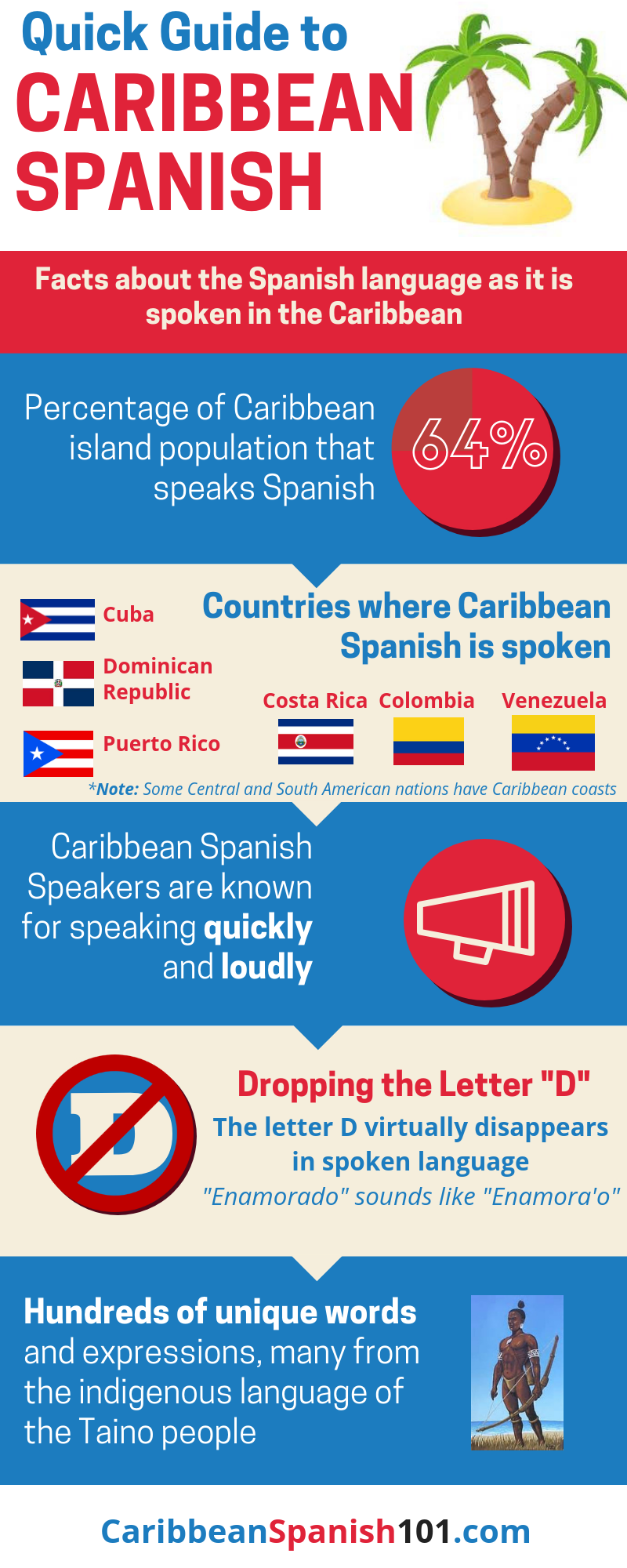

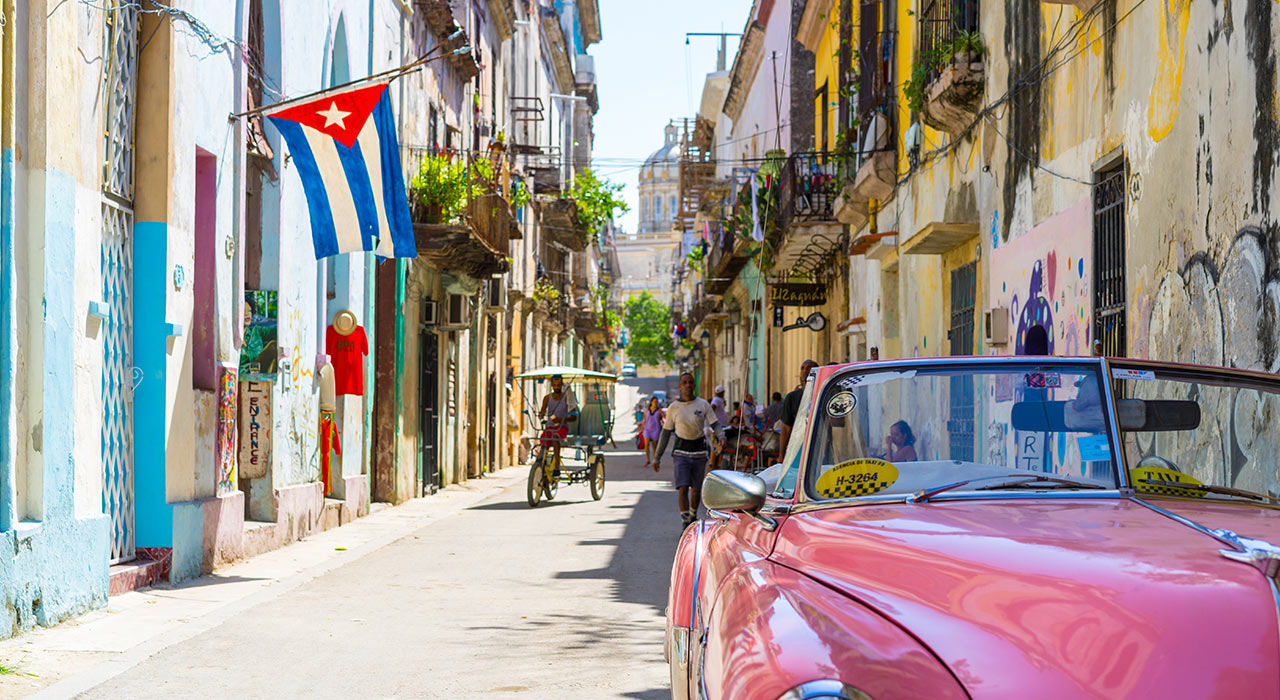

Social